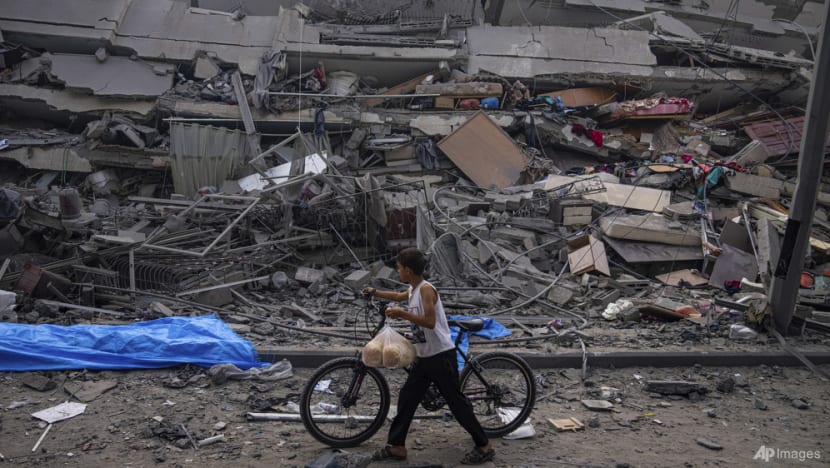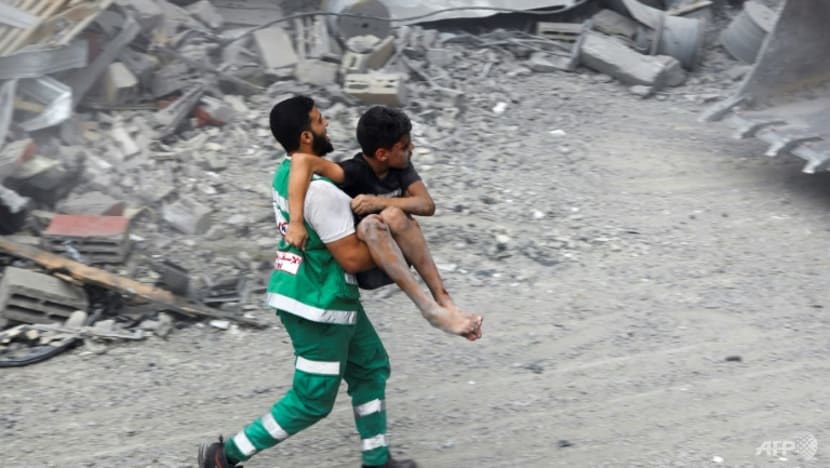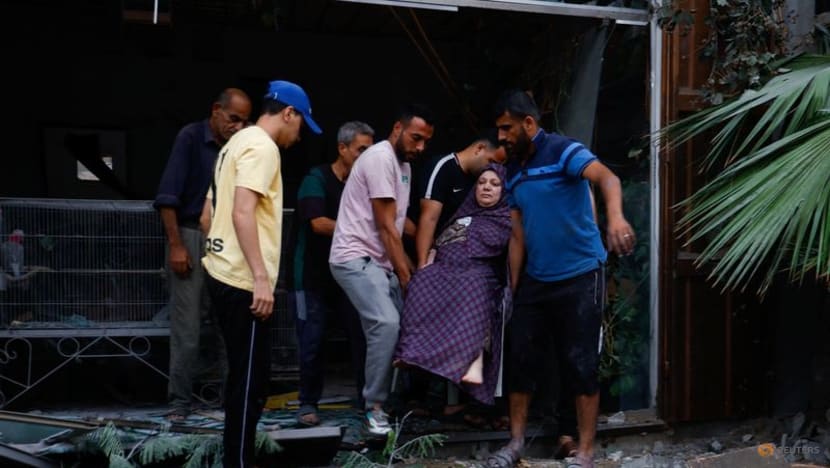GAZA: As Israel's military sent phone messages telling Palestinians to leave some areas of Gaza after Saturday's (Oct 7) deadly Hamas raid, Mohammad Brais did not know where to seek safety from an assault that residents expect to be the worst they have ever faced.
"Where should we go? Where should we go?" the 55-year-old father asked.
He had fled his home near a possible front line to shelter at his shop - only for that to get hit in one of the hundreds of air and artillery strikes already pounding Gaza.
Palestinians are preparing for an offensive of unprecedented scale on the tiny, crowded enclave, exceeding previous bouts of destructive warfare that they fear will leave survivors destitute, without homes, water, electricity, hospitals or food.
The surprise Hamas attack on Saturday caused Israel its bloodiest day in decades as fighters smashed through border defences and marauded through towns, killing more than 700 people and dragging dozens more into captivity in Gaza.
Israeli Defence Minister Yoav Gallant warned that the price Gaza would pay "will change reality for generations" and Israel was imposing a total blockade with a ban on food and fuel imports as part of a battle against "animals".
By Monday afternoon, Hamas said more than 500 people had been killed, 2,700 wounded and 80,000 displaced in the hundreds of strikes that Israeli warplanes, drones, helicopters and artillery cannon have fired into Gaza.
Gaza has no protected shelters designated for times of war.


